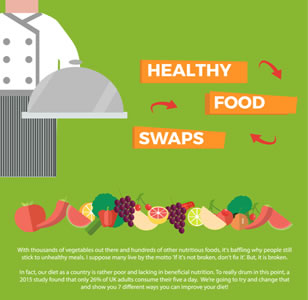 A happy child is a healthy and confident child. One way that you as a dad can help your son or daughter is to ensure that they have continuity in their life. This can be achieved by following a set routine.
A happy child is a healthy and confident child. One way that you as a dad can help your son or daughter is to ensure that they have continuity in their life. This can be achieved by following a set routine.
Toddlers
Having a bedtime routine in your toddler’s life is important so make sure that you have a set bed time, with a bath and a story and offer your child a last glass of milk. Offer them stability too with a routine geared around food. Food is a highly emotive subject and a child will often claim to be hungry when actually they are maybe bored or vying for attention. Having a routine will not only give your child stability but also give you the confidence to say no when extra snacks are demanded.
Ensure that you have set meal times (these include snack times too) and stick to them! For instance 7:30, 12:30 and 5. Snack times are equally important and could be at say 10 and 3. As your toddlers grow up and start school, the original routine will be difficult to adhere to and a different one will take its place. Bed times are particularly important.
The reason routine is so important is that it helps your child know where they are. Children love routine. It helps to give stability especially when other factors in their life may not be so stable.
When any food is offered, be it meal times or snacks, insist that your child sits down and eats at the table. When snacks are offered, it is tempting to let your child eat watching telly. The trouble with this is, it becomes hard to differentiate between snacks and meals. Sitting down to eat at the table is an important lesson to learn. There should be no instances when your child is allowed to walk around eating. Not only is this associated with choking, but it gives way to grazing habits.
Grazing is when food is available all the time and the child can eat at will. By allowing your child to graze, you are opening up possible dental problems as many snack foods are high in acid (such as raisins). They attack the teeth when eaten on their own. In addition when a child grazes continually they may not be getting all the nutrients that they need. They may be full up by meal time and skimp on what should be their main set of nutrients.
Toddlers only have little tummies. At this stage in a child’s life it is important to offer foods that have all the right nutrients, as they are growing rapidly. Meal times should consist of both a main meal and a pudding to ensure that both starchy and dairy foods and a variety of fruit and vegetables are eaten.
If you stick to a set time you will be ready to provide a healthy snack rather than having to react quickly and rely on junk.
Ideas for healthy snacks:
- Slices of fruit and vegetables
- A small sandwich with vegetables or salad
- Bread sticks and cubes of cheese
- Pitta bread and hummus
- Scones
- Yogurt and fruit
- Hot cross bun
Encourage your child to drink water at all times and especially at meal times to avoid both constipation and dehydration.
School age children
Depending on the age of the child, the type of food eaten at school will vary and there may not be much you can do about it. When they get home, if they are hungry, feel free to give them a snack from one of the items listed above. Do not give too large a snack if dinner is due to be served soon. Remember it is important for children to be hydrated. Many children do not drink at school, so ensure they have a glass of water when they get home.
One meal that is vital is breakfast. It sets your child up for the day.
Teenagers at secondary school are a different matter. They can go with their friends into the fish and chip shop on the way home. Although this is a very social thing to do, it is extra calories that they do not need and should be something they do for special occasions not every day, so it may be a good idea to get them some crackers to put into their bag.
About the Author:
Sarah Scotland holds a BSc (Hons) in Nutrition, Exercise and Health. she is an associate member of the Nutrition Society , and also belongs to ASO – Association for the study of obesity, SENSE (self employed nutritionists, support and enlightenment), and Sustain. http://www.wiseaboutfood.co.uk/
CLICK TO VIEW INFOGRAPHIC:









